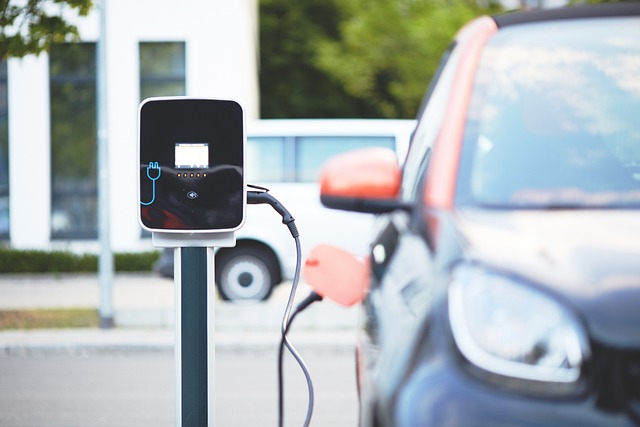Rev Up for the Future: The Ultimate Guide to Electric Car Lease Deals in the UK
The landscape of the automotive industry in the United Kingdom has been rapidly evolving, and electric vehicles (EVs) have become a significant focus. As the UK pushes for greener transportation solutions, leasing an electric car has emerged as a popular option for both individuals and businesses. With a host of new offers, let's dive into the world of electric car lease deals in the UK, exploring no deposit options, cheap EV leases, and the advantages for businesses.

The electric vehicle market in the UK is experiencing unprecedented growth as drivers increasingly recognize the environmental and economic benefits of switching to battery-powered transportation. While purchasing an electric vehicle outright remains expensive for many, leasing offers an accessible pathway to green driving without the long-term commitment or substantial initial investment. This comprehensive guide explores everything you need to know about electric car leasing in the UK, from understanding the basics to finding the most cost-effective deals.
Green Driving: The Rise of EVs in the UK
The UK’s roads are undergoing a quiet revolution as electric vehicles become an increasingly common sight. Government data shows registrations of pure electric cars have risen dramatically in recent years, with over 260,000 battery electric vehicles registered in 2022 alone. This surge reflects growing environmental awareness among drivers, alongside practical considerations such as lower running costs and improved vehicle performance.
The infrastructure supporting this transition is expanding rapidly too. The UK now boasts over 42,000 public charging points across more than 15,500 locations, making range anxiety less of a concern for prospective EV drivers. Urban areas have seen particularly strong growth in charging facilities, though rural coverage continues to improve as part of the government’s commitment to supporting the transition to electric vehicles ahead of the 2030 ban on new petrol and diesel car sales.
Lease an EV: Affordable and Up-to-Date
Leasing an electric vehicle presents several distinct advantages over purchasing. Perhaps the most significant benefit is access to the latest technology without the depreciation concerns that often affect early adopters of new automotive technology. Electric vehicle technology is evolving rapidly, with manufacturers regularly introducing models with improved range, faster charging capabilities, and enhanced features.
With a typical lease period of 2-4 years, drivers can upgrade to newer models as they become available, ensuring they always have access to the most current technology. This approach also shields consumers from potential depreciation issues that might affect first-generation electric vehicles as newer, more advanced models enter the market.
Monthly payments on EV leases are often lower than financing the purchase of an equivalent vehicle, making premium electric models accessible to a broader range of drivers. Additionally, maintenance costs tend to be minimal during the lease period, as most electric vehicles are covered by manufacturer warranties throughout the typical lease duration.
No Deposit Deals: Drive Without the Big Down Payment
One of the most appealing developments in the electric car leasing market is the emergence of no-deposit options. Traditionally, vehicle leasing required a substantial upfront payment—often equivalent to several months of lease payments. This initial outlay created a significant barrier for many potential lessees, particularly those looking to transition to electric vehicles.
Today, numerous leasing companies offer zero-deposit electric car leases, allowing drivers to get behind the wheel with just the first month’s payment. These arrangements typically result in slightly higher monthly payments compared to leases with deposits, but they eliminate the need for a large initial investment. This approach has democratized access to electric vehicles, enabling more drivers to make the switch to green transportation without straining their finances.
When considering a no-deposit deal, it’s important to carefully review the terms, as these arrangements may have stricter credit requirements or mileage limitations compared to traditional leases with deposits.
Business Boost: Electric Car Leases for Companies
For businesses, electric vehicle leasing offers particularly compelling advantages. Companies can benefit from enhanced capital efficiency by avoiding the large upfront costs associated with fleet purchases. Electric vehicles also qualify for favorable tax treatment, including lower Benefit-in-Kind (BiK) rates for company car users and enhanced capital allowances for businesses.
Corporate electric vehicle leases typically include comprehensive maintenance packages, simplifying fleet management and providing predictable operational costs. Many leasing providers also offer telematics and fleet management solutions specifically designed for electric vehicles, helping businesses optimize charging schedules and monitor energy usage.
The corporate sector has emerged as a significant driver of electric vehicle adoption, with many organizations incorporating EV leasing into their environmental sustainability strategies. This approach allows companies to demonstrate environmental responsibility while potentially reducing their overall transportation costs through lower fuel and maintenance expenses.
Future-Proof: The 2030 Petrol Ban and Beyond
The UK government’s commitment to end the sale of new petrol and diesel cars by 2030 has created additional incentives for drivers to consider electric vehicles. By leasing an electric car today, drivers can gain valuable experience with this technology before the transition becomes mandatory for new vehicle purchases.
Leasing provides flexibility during this period of technological and regulatory change. As charging infrastructure continues to expand and battery technology improves, those on lease contracts can easily upgrade to vehicles that benefit from these advancements. This approach minimizes the risk of being left with outdated technology or vehicles that may face restrictions in certain areas as clean air zones expand across the country.
Electric Car Lease Providers and Costs
The market for electric vehicle leases has become increasingly competitive, with numerous providers offering varied terms and vehicles. Below is a comparison of some established leasing companies and their typical offerings:
| Provider | Popular EV Models | Monthly Cost Range | Contract Length Options |
|---|---|---|---|
| Octopus EV | Tesla Model 3, Kia e-Niro | £299-£599 | 24-48 months |
| LeasePlan | VW ID.3, Hyundai Kona Electric | £249-£549 | 24-60 months |
| Arval | Nissan Leaf, Peugeot e-208 | £229-£499 | 24-48 months |
| Lex Autolease | BMW i3, Renault Zoe | £259-£599 | 24-36 months |
| Zenith | Audi e-tron, Mercedes EQA | £399-£899 | 36-48 months |
Prices, rates, or cost estimates mentioned in this article are based on the latest available information but may change over time. Independent research is advised before making financial decisions.
These costs typically include vehicle excise duty (road tax), manufacturer warranty, and often breakdown cover. However, they exclude insurance and electricity costs. Many providers now offer packages that include home charger installation, which can significantly enhance the convenience of EV ownership.
When comparing lease deals, it’s essential to consider the total cost of the lease rather than focusing exclusively on the monthly payment. Factors such as mileage allowances, excess mileage charges, condition requirements, and end-of-lease fees can substantially impact the overall value of different offers.
The electric vehicle leasing landscape continues to evolve rapidly, with new models and innovative leasing structures regularly entering the market. For those considering making the switch to electric driving, leasing represents a flexible, cost-effective pathway to experiencing the benefits of this technology while minimizing financial risk during a period of technological transition. As the 2030 deadline approaches, the options for electric vehicle lessees are likely to expand further, providing even greater choice and value.




